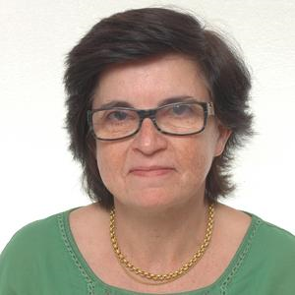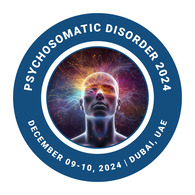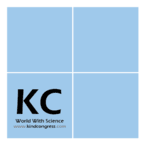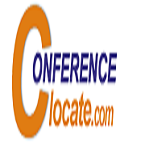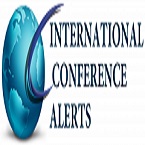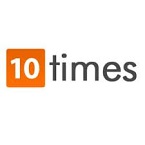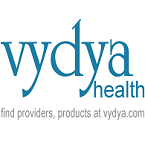Welcome Message:
It’s our pleasure to invite you to the “International Conference on Psychosomatic Medicine and Disorders,” scheduled to take place on December 09-10, 2024, in Dubai, UAE. PSYCHOSOMATIC DISORDER 2024 will bring together a diverse community of psychological researchers, scholars, academicians, practitioners, students, and industry delegates from around the world. This conference offers a unique platform for global investigators, young scientists, and professionals to meet, network, and exchange the latest scientific innovations in psychology and mental health. Join us to learn, share, and engage with experts presenting cutting-edge research and developments in the field.
PSYCHOSOMATIC DISORDER 2024 welcomes psychiatrists, neuropsychiatrists, neurosurgeons, neurologists, emergency medicine specialists, international speakers, scientists, researchers, university professors, psychologists, mental health trainers, clinicians, nurses, caregivers, speech therapists, students, educators, and healthcare professionals to share their insights and experiences in this expansive domain.
Keytopics
Track-1: Psychosomatic Medicine: Mind-Body Connection
Explore how mental and emotional states can influence physical health, highlighting key theories and research in psychosomatic medicine. Discuss the interplay between psychological factors and physical symptoms, and the implications for diagnosis and treatment.
Track-2: Stress and Physical Health
Examine the relationship between chronic stress and its impact on physical health, including its role in exacerbating conditions such as hypertension, diabetes, and cardiovascular diseases. Review strategies for stress management and its importance in overall health maintenance.
Track-3: Psychoneuroimmunology: Mind-Body Links
Delve into the field of psychoneuroimmunology, which studies how psychological processes affect the immune system. Discuss the bidirectional communication between the mind and immune response and its implications for chronic illness and disease prevention.
Track-4: Chronic Pain & Somatic Disorders
Analyse the intersection of chronic pain and somatic disorders, including the psychological factors that contribute to persistent pain. Discuss diagnostic challenges and integrative treatment approaches combining psychological and physical therapies.
Track-5: Mindfulness & CBT for Psychosomatic Disorders
Investigate the effectiveness of mindfulness and Cognitive Behavioral Therapy (CBT) in treating psychosomatic disorders. Review evidence supporting these therapies in managing symptoms and improving patient outcomes.
Track-6: Emotions and Physical Illness
Explore how various emotions, such as depression and anxiety, can manifest as physical illnesses. Discuss the mechanisms through which emotional states can influence physical health and approaches for addressing these connections in clinical practice.
Track-7: Somatic Symptom Disorders: Diagnosis & Management
Provide an overview of somatic symptom disorders, including their diagnostic criteria and management strategies. Highlight the importance of a comprehensive approach that incorporates both psychological and medical perspectives.
Track-8: Gut-Brain Axis in Psychosomatic Illness
Discuss the gut-brain axis and its role in psychosomatic illness, including how gastrointestinal health can affect mental well-being and vice versa. Explore current research on the bidirectional communication between the gut microbiome and brain function.
Track-9: Psychosomatic Cardiovascular Issues
Examine the impact of psychological factors on cardiovascular health, including how stress, anxiety, and depression can contribute to cardiovascular diseases. Review strategies for integrating psychological care into cardiovascular treatment.
Track-10: Autoimmune Diseases: A Psychosomatic View
Explore how psychosomatic factors can influence autoimmune diseases, including the role of stress and psychological trauma in disease onset and progression. Discuss approaches for managing autoimmune conditions with a psychosomatic perspective.
Track-11: Functional Neurological Disorders
Investigate functional neurological disorders, where psychological factors play a significant role in the manifestation of neurological symptoms. Review diagnostic challenges and treatment approaches for these complex conditions.
Track-12: Integrative Psychosomatic Approaches
Discuss integrative approaches that combine psychological and medical treatments for psychosomatic disorders. Highlight case studies and evidence supporting the efficacy of holistic treatment plans.
Track-13: Psychosocial Factors in Cancer
Explore how psychosocial factors, such as stress and social support, impact cancer progression and patient outcomes. Discuss strategies for addressing these factors in cancer care to improve patient quality of life.
Track-14: Sleep Disorders & Psychosomatic Health
Examine the relationship between sleep disorders and psychosomatic health issues. Discuss how poor sleep can exacerbate psychosomatic symptoms and review treatment options that address both sleep and psychological health.
Track-15: Somatization in Children
Analyze the phenomenon of somatization in children, including how psychological factors can manifest as physical symptoms in young patients. Discuss diagnostic considerations and management strategies for pediatric somatization.
Track-16: Cultural Views on Psychosomatic Disorders
Explore how cultural beliefs and practices influence the perception and management of psychosomatic disorders. Discuss the importance of cultural sensitivity in diagnosis and treatment.
Track-17: Biofeedback & Psychophysiology
Investigate the use of biofeedback and psychophysiological techniques in managing psychosomatic disorders. Review how these methods can help patients gain control over physiological processes and improve their overall well-being.
Track-18: Trauma's Role in Psychosomatic Disorders
Examine the impact of trauma on the development and progression of psychosomatic disorders. Discuss therapeutic approaches for addressing trauma and its effects on physical health.
Track-19: Psychosomatic Gastrointestinal Issues
Explore how psychological factors can contribute to gastrointestinal disorders, such as irritable bowel syndrome (IBS). Review diagnostic and treatment approaches that address both psychological and gastrointestinal symptoms.
Track-20: Future of Psychosomatic Research
Discuss emerging trends and future directions in psychosomatic research. Highlight innovative approaches, technologies, and areas of study that hold promise for advancing the understanding and treatment of psychosomatic disorders.
Benefits of Registering
|
Speaker Benefits
|
-
Collaborating & networking with global researchers.
-
Group Registration discounts
-
Outstanding Young Researcher certifying Award.
-
Get your abstract published in the proceeding open access journal.
-
International Speaker participation Certification and Recognition
-
Networking Opportunities
-
Global exposure of your research in the conference website.
-
Abatements will be provided in the next annual series of conferences which are held as physical/Webinars.
-
Concessions upon Article Publication charges are available for the conference participants, who are interested to publish their research articles in our open access journals.
-
Social Media Promotion
-
Refreshments and Lunch during the conference
|
|
Delegate Benefits
|
-
Active participation in the Question and Answer sessions after the speakers talk.
-
Collaborating & networking with global researchers.
-
International E- Certification honour for participation.
-
Group Discounts are provided for the participation of 2 or more people.
-
Abatements will be provided in the next annual series of conferences which are held as physical/Webinars.
-
Concessions upon Article Publication charges are available for the conference particpants, who are interested to publish their research articles in our open access journals.
-
Refreshments and Lunch during the conference
|
Target Audience
-
Neurologists: Medical professionals specializing in diagnosing, treating, and managing neurological disorders, including Alzheimer’s disease and dementia.
-
Researchers and Scientists: Experts conducting advanced research on neurology, Alzheimer’s disease, dementia, and other cognitive disorders.
-
Clinicians: Healthcare providers involved in the direct care and treatment of individuals with cognitive disorders like Alzheimer’s and dementia.
-
Geriatricians: Physicians specializing in the care of older adults, focusing on diagnosing and managing age-related cognitive disorders.
-
Psychiatrists and Psychologists: Mental health professionals who assess and treat dementia-related behavioural and cognitive symptoms.
-
Neuroscientists: Researchers dedicated to exploring the brain's structure, functions, and mechanisms contributing to cognitive decline.
-
Nursing Professionals: Nurses specialized in geriatric and dementia care, providing critical support to patients and families.
-
Pharmacologists: Experts studying the effects of medications on neurological conditions, including Alzheimer’s and other cognitive disorders.
-
Healthcare Administrators: Professionals managing healthcare facilities and resources related to neurology and dementia care.
-
Caregivers and Family Members: Individuals providing daily care and support to those with Alzheimer’s disease and dementia, seeking knowledge and resources.
-
Pharmaceutical Industry Representatives: Professionals involved in developing medications and treatments for cognitive disorders such as Alzheimer’s.
-
Academics and Educators: Educators and academic professionals teaching and advancing knowledge in neurology, Alzheimer’s disease, and dementia.
-
Government and Policy Makers: Officials responsible for shaping healthcare policies and regulations impacting neurological disorder and dementia care.
-
Non-profit Organizations and Advocates: Representatives from organizations dedicated to supporting, advocating, and raising awareness for individuals with Alzheimer’s and their families.
-
Students and Trainees: Aspiring professionals, including medical and graduate students, interested in pursuing careers in neurology and related fields.
Top Reasons to Be a Part of This Extravaganza:
-
Stimulating Plenary Sessions: Prepare to be amazed by the visionary speeches of distinguished experts who will share their insights and wisdom on the most pressing issues and challenges in dementia care and research. You will learn from their experiences, successes and failures, and get inspired by their passion and vision.
-
Cutting-Edge Symposia: Dive into a diverse range of topics that cover the latest advances and innovations in dementia science and practice. You will discover new knowledge, methods and tools that can help you improve your work and outcomes. You will also interact with speakers and attendees, and exchange ideas and opinions.
-
Interactive Workshops: Enhance your skills and competencies through hands-on training sessions led by experienced facilitators. You will learn how to apply evidence-based practices, use effective strategies and techniques, and overcome common barriers and challenges. You will also receive feedback and guidance from experts and peers.
-
Showcase Your Research: Showcase your research and get recognition for your achievements. You will have the opportunity to present your work in oral or poster format, and receive constructive comments and suggestions from reviewers and audience. You will also network with potential collaborators, funders and employers.
-
Networking Extravaganza: Connect with like-minded professionals, researchers, practitioners and advocates from different sectors, disciplines and regions. You will build new relationships, expand your network, and explore opportunities for collaboration, partnership and career development.
Market Analysis
Scope and Importance
Psychosomatic Disorder 2025 serves as a crucial platform for mental health professionals, researchers, and policymakers to exchange knowledge and advancements in the field. It facilitates the dissemination of the latest research findings, innovative treatment approaches, and emerging technologies. The conference fosters interdisciplinary collaboration, helping to bridge gaps between various fields of mental health care. Additionally, it raises awareness and reduces stigma associated with mental health issues, promoting global mental wellness and influencing policy changes for better mental health care systems.
Pharmaceutical Market in Psychiatry
Over the past five years, the global pharmaceutical market in psychiatry has seen significant growth, driven by rising mental health awareness and advancements in drug development. The market expanded at a compound annual growth rate (CAGR) of 7.8%, reaching a value of approximately $70 billion in 2023, up from $48 billion in 2018. The demand for antidepressants and antipsychotics contributed to a 6.5% increase, while the segment for anxiety disorder treatments grew by 8.3%. Generic psychiatric medications accounted for 35% of the market in 2023, up from 28% in 2018, reflecting a shift towards more cost-effective treatment options.
Mental Health Services and Accessibility
From 2018 to 2023, the global accessibility to mental health services has improved steadily, with an average annual increase of 6%. By 2023, 58% of urban populations had access to mental health services, compared to 42% in 2018. Rural areas saw an increase from 20% to 28% in the same period. Telepsychiatry services grew at an impressive 15% annually, projected to reach 35% of total mental health consultations by 2027. Public funding for mental health services increased by 8% annually, with expectations to continue this trend, aiming for a 40% increase by 2027.

Technological Advancements in Mental Health Treatment
From 2025 to 2030, the market for technological advancements in mental health treatment is projected to grow significantly. In 2025, the global market is valued at $15 billion, with the U.S. leading at 35%, followed by Europe at 25%, and Asia-Pacific at 20%. By 2026, increased adoption of AI-driven mental health apps boosts the market to $18 billion, with the U.S. holding 33%, Europe 27%, and Asia-Pacific 22%. In 2027, the market reaches $21 billion due to the growing popularity of virtual reality (VR) therapy, with the U.S. accounting for 30%, Europe 30%, and Asia-Pacific 25%. The integration of mental health platforms with wearable devices in 2028 propels the market to $25 billion, with the U.S. at 28%, Europe 32%, and Asia-Pacific 27%. By 2030, advancements in digital therapeutics and personalized treatment plans increase the market value to $30 billion, with Europe leading at 35%, followed by Asia-Pacific at 30%, the U.S. at 25%, and other regions at 10%.
Accreditation
All major Conference Series Conferences are accredited with Continuing Education (CE), Continuing Professional Development (CPD) and Continuing Medical Education (CME) credits respectively.
CME Credits:
Continuing Medical Education (CME) refers to a specific form of continuing education that helps medical professionals to maintain competence and learn about new and developing areas of their field. Conference Series Conferences are recognised and accredited with CME credits to enhance the professional abilities and skills of participants. CME credits are important to physicians because they require a specified number of credits annually to maintain medical licenses. CME credits are authorized by the Accreditation Council for Continuing Medical Education. Attending CME accredited conference is beneficial and valuable to physicians and other medical professional as it is a source of constant improvement that ultimately improves their medical practice, and keeps them up-to-date on the latest technologies, advancements, treatments, etc. Speaking at CME activities can also be a great stage for clinical medical professionals to share their expertise and increase their distinction in their specialty.
CE Credits:
Continuing Education (CE) credit is a measure used in continuing education programs to assist the professional to maintain his or her license in their profession. Conference Series Conferences provides ample opportunities to acquire CE credits. CE can open up previously closed doors and lead to better job opportunities. CE usually refers to college courses or other vocational training obtained by older adults or working professionals. CE credits work as carrier promoter and hold great value in medical, clinical and other areas of research even after completion of degrees in concerned field of research. It is pivotal in today’s world to get updated information on your field of research and profession. Attending Continuing Education Conferences can help expand your network and make connections that could translate into profitable relationships or job opportunities down the line. It also plays a vital role in recruiting new team members for an employer with open positions. CE helps licensing organizations and professional membership groups. Continuing Education promotes high quality performance, keep professionals up to date with the latest advances, and provide excellent networking opportunities.
CPD Credits:
Continuing Professional Development (CPD) is the holistic commitment of professionals towards the enhancement of personal skills and proficiency throughout their careers. It enables learning to become conscious and proactive, rather than passive and reactive. CPD accreditation is important because it ensures that courses provided adhere to the highest educational standards and international benchmarks of quality and learning. CPD enriches your knowledge, keeps you currently competent and is the key to career progression and professional growth. There are many advantages to carrying out CPD that includes filling gaps in your knowledge and skills to become more productive and efficient, building confidence and credibility to stand out from the crowd, achieving your career goals and demonstrating professional status. CPD hours can be earned through continuing education, leadership activities, instructional activities, completion of significant work projects, research and publications. Conference Series Conferences have been accredited with CPD credits to expedite the progress of research and industry professionals.
Visa Guidelines
-
Visa Processing: The organizing committee is not involved in visa processing. Attendees must apply for their own visa through the appropriate embassy or consulate.
-
Required Documents:
-
Letter of Invitation: Provided by the conference organizers as proof of acceptance and registration. It will be in English and should assist in the visa application process.
-
Letter of Abstract Acceptance: Proof that your abstract or paper has been accepted for presentation.
-
Registration Payment Receipt: Confirmation of your conference registration and payment.
-
Additional Documents: You may need to submit additional documents as required by the embassy, which could include:
-
Passport (scan copy)
-
Date of Birth (DOB)
-
Mobile Number
-
Physical Address
-
Recent Photograph
-
Official Letter of Invitation:
-
Eligibility: Only registered participants who have completed their registration and authenticated information submission will receive an official Letter of Invitation.
-
Registration Requirement: Ensure you finish registration and provide required information (passport scan, DOB, mobile number, physical address, and photograph) to receive the official Letter of Invitation.
-
Contact Information:
-
Application Process:
Ensure you start the visa application process well in advance to accommodate any processing times or additional requirements.
